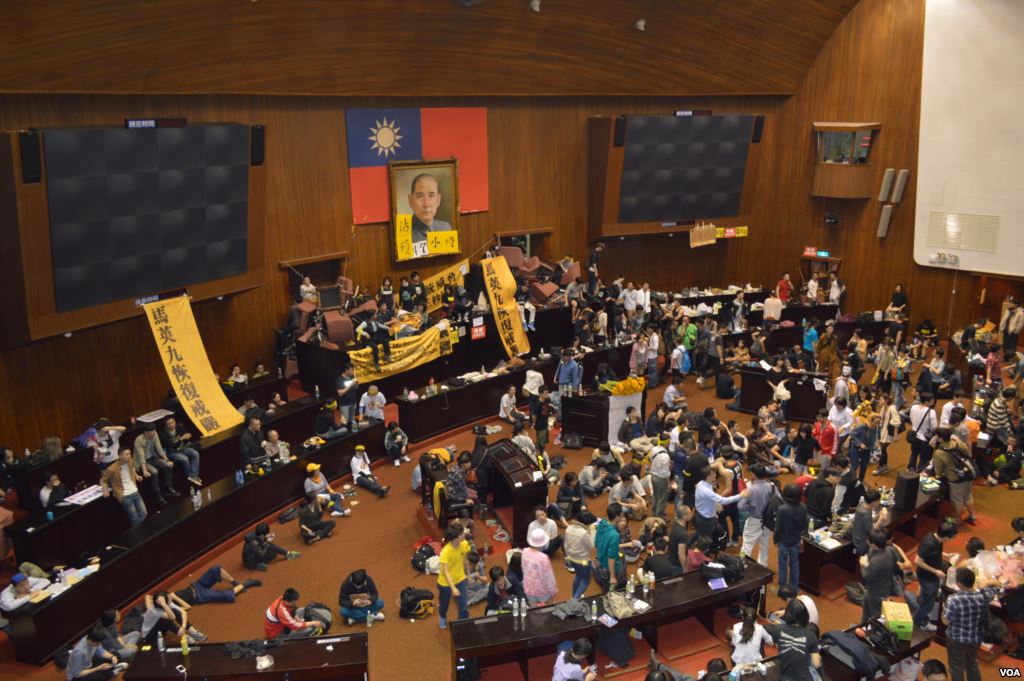The Taipei District Court issued 11 guilty verdicts on Monday over the occupation of Taiwan’s Executive Yuan during the 2014 Sunflower Student Movement, sentencing protesters to terms of imprisonment between three and five months.
21 people had been charged with a total of four different offences following an attempt by dozens of protesters to occupy the building of Taiwan’s executive branch on the evening of March 23, 2014.

The protesters climbed into the building via ladders, but were expelled by the police at 5am the next morning.
The police initially made 61 arrests related to the incident.
According to local newspaper Liberty Times, the court convicted eight protesters on Monday on charges of obstructing an officer in the discharge of duties. A further three were convicted for damaging public property.
Eight protesters charged with incitement to commit an offence – including student activist Dennis Wei – were acquitted, alongside two protesters charged with theft.
Their prison sentences can be commuted into monetary fines.
Questions remain
Speaking outside the Taipei District Court, Wei said that the protesters involved in the Sunflower Movement accepted the responsibility for their actions and had faced the legal consequences over the past three years.

Wei alleged that police officers had beat activists while expelling them from the building. He said that then-president of the Executive Yuan Jiang Yi-huah and district police chief Fang Yang-ning should also have faced an investigation.
“Who are the police officers who beat people?” he asked. “Until now we still don’t have an answer.”
The convicted defendants have not yet decided whether to appeal their sentences.
Acquittals for legislature occupation
Last month, the same court acquitted 22 protesters over the occupation of Taiwan’s Legislative Yuan – the legislature – that began on March 18, 2014, signalling the start of the student movement.
Presiding Judge Liao Chien-yu ruled that their actions met the criteria for “civil disobedience.”

The movement broke out in protest of the then-ruling Kuomintang government’s controversial review of a trade pact with mainland China. Ignoring calls for a clause-by-clause review, the legislature completed the task within 30 seconds on March 17.
More than 500,000 joined the protests following the occupation of the legislature. After the government agreed to postpone the review, the protesters left the building on April 10.
See also: Court acquits 22 Sunflower Movement protesters over occupation of Taiwan’s legislature
Monday represented the final of three series of trials related to the Sunflower Movement.
The first convictions came last December, when four protesters received short-term prison sentences after demonstrations broke out surrounding a Taipei police station on April 11, 2014. They are appealing their sentences.
